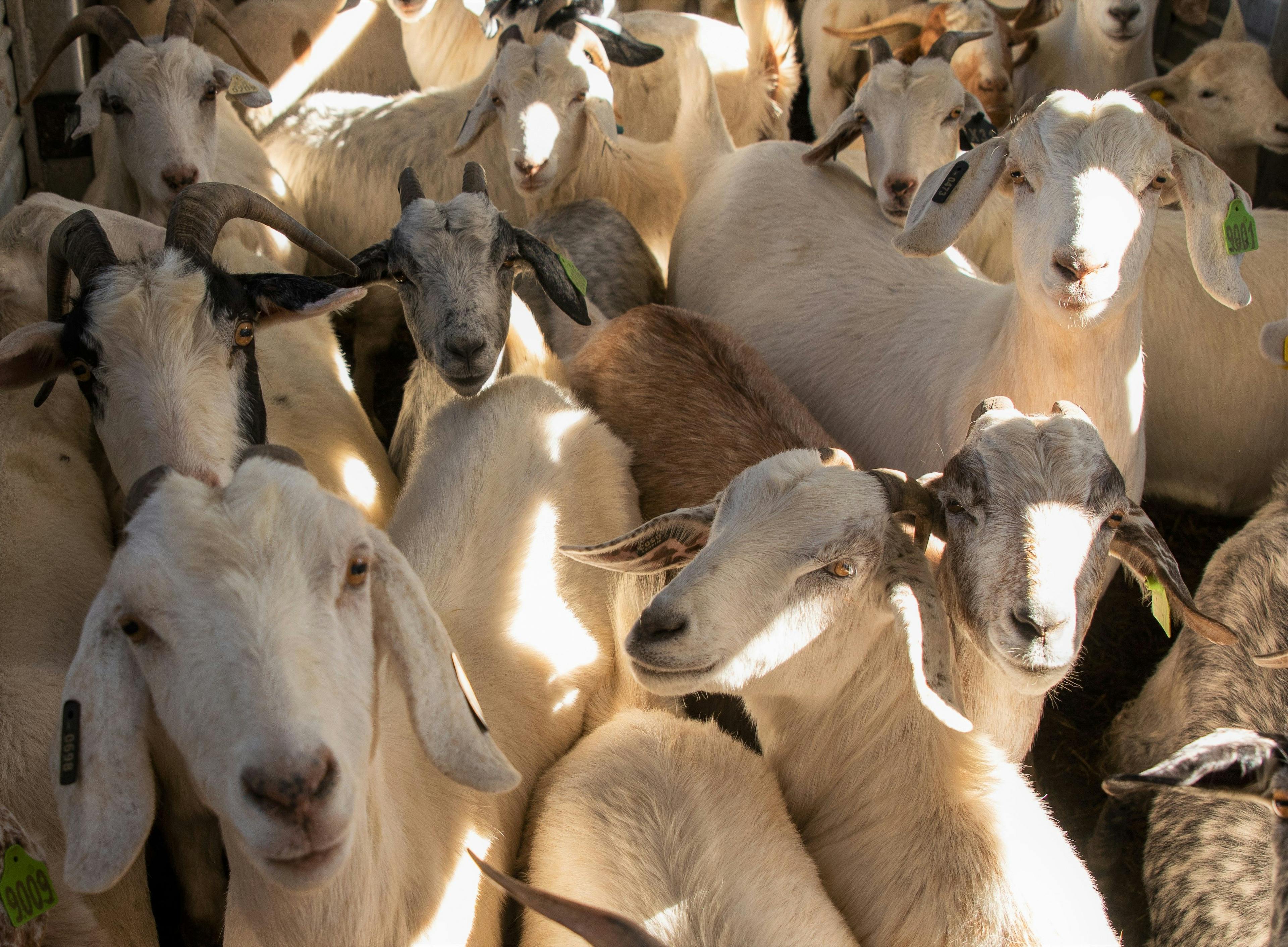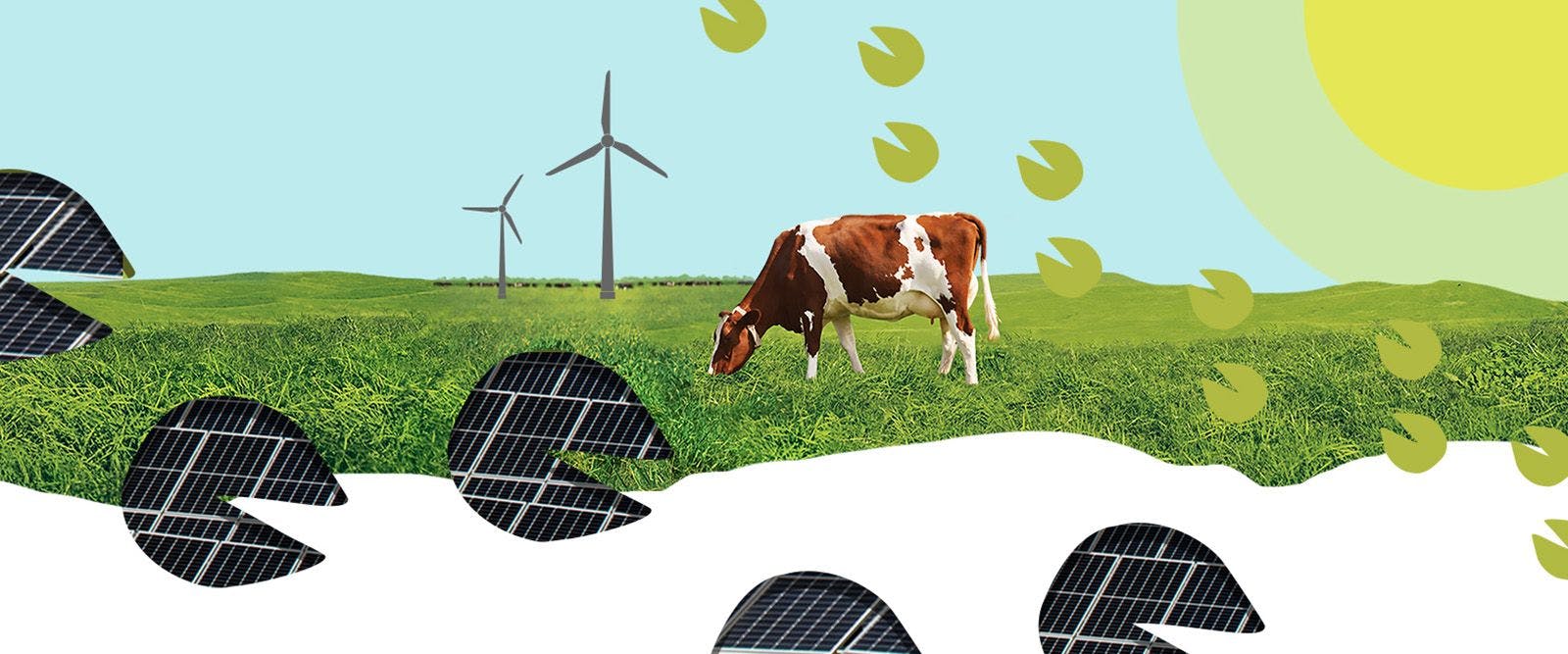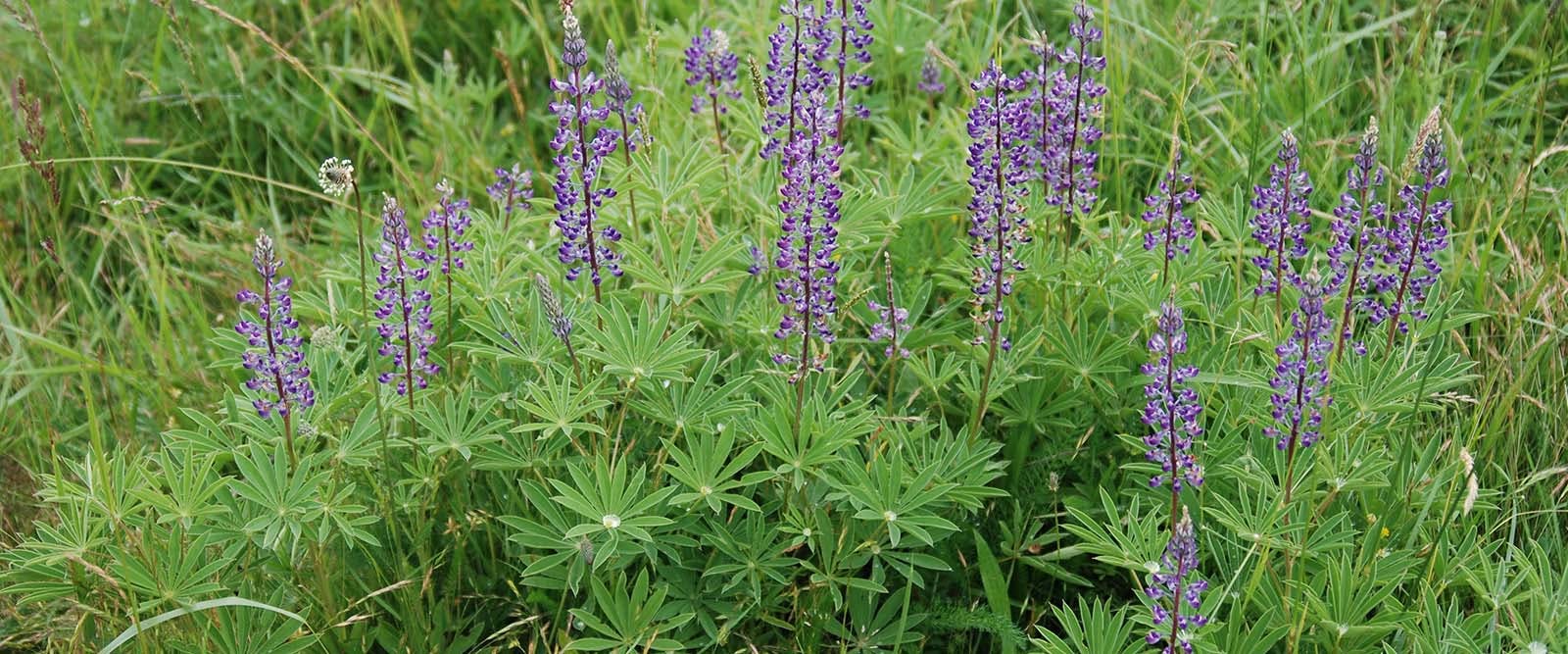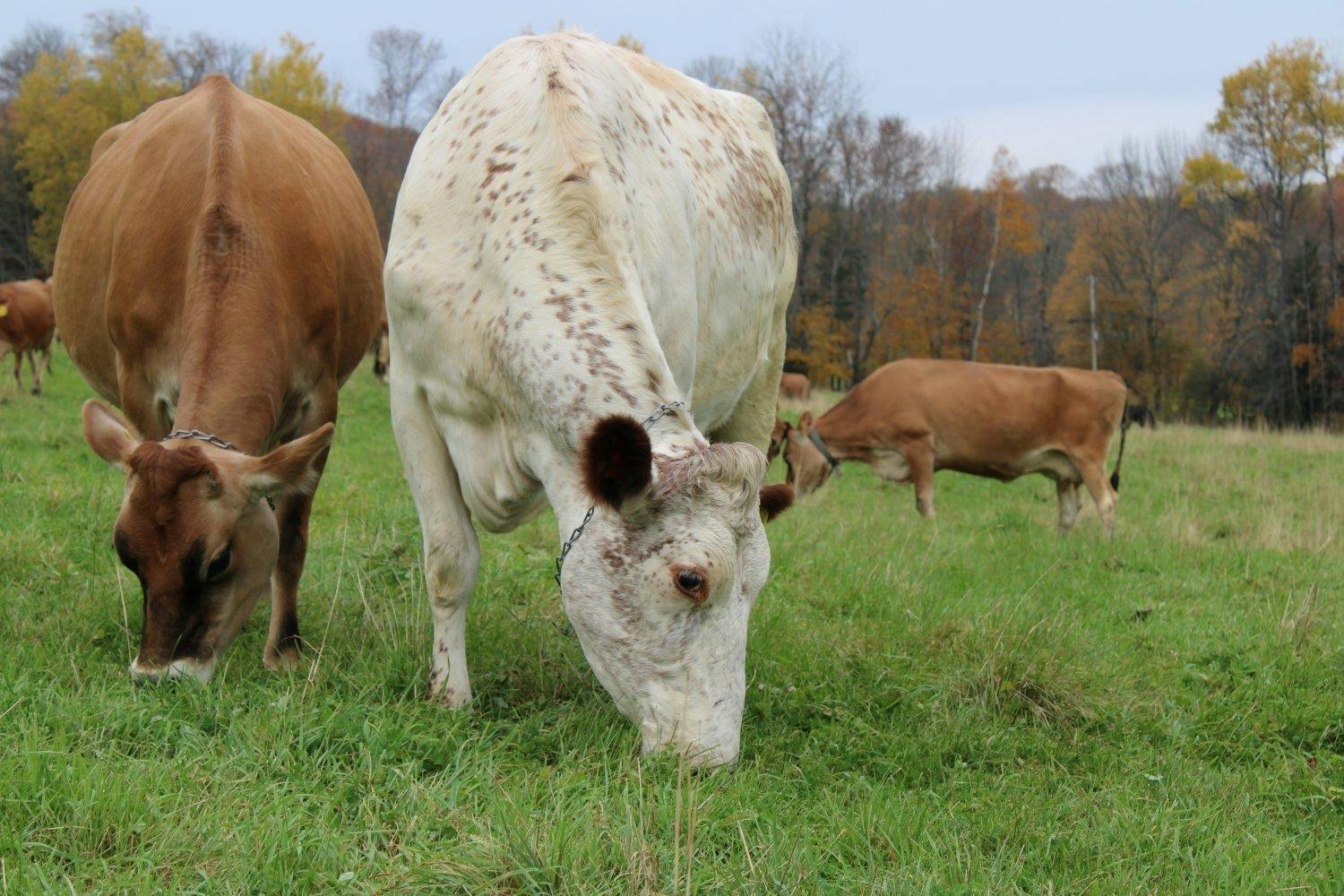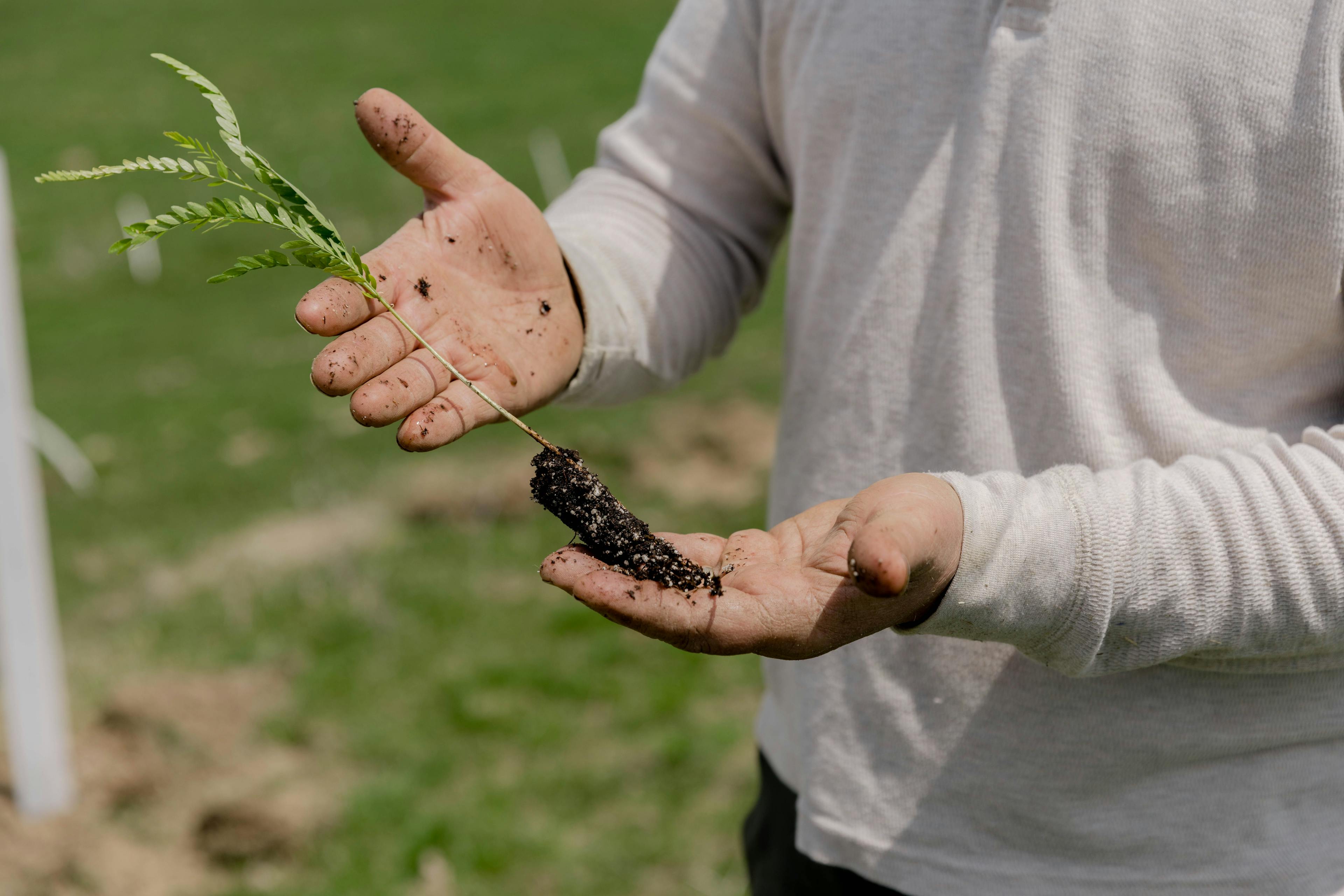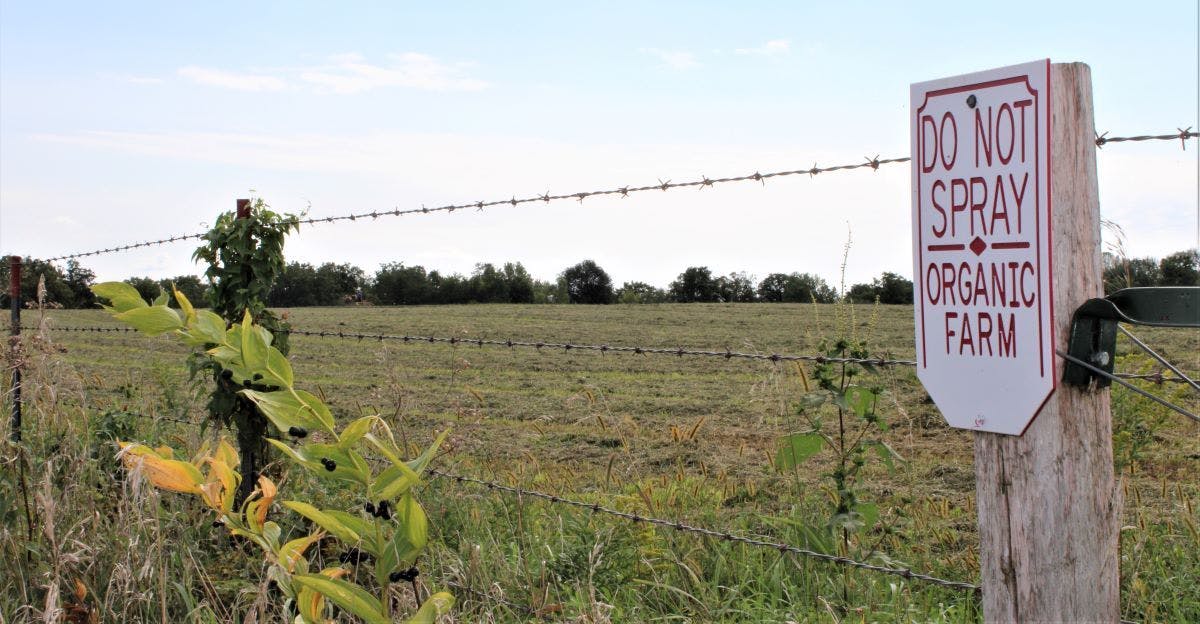
Earth
Picture This: Protecting the Planet
Taking care of the earth is what we do on Organic Valley farms because we know it takes care of us. It’s the sensible thing to do!
As we enter Earth Month, it’s a good time to give you a peek at the approaches Organic Valley farmers take to care for the land, water and air that make farming — and all life — possible.
The Power of Pasture
In Organic Valley pasture lives grasses and legumes like clover, brome, ryegrass, timothy, fescue, reed canarygrass and so much more. It’s basically a salad bar for cows.
Science shows that organic farms have 30% more biodiversity. Not using toxic pesticides means worms and beneficial insects like bees, beetles and butterflies love our pastures and the less-tended fence lines and treelines bordering them.
Turtles Traverse the Landscape
Speaking of healthy pasture ... a farmer never knows what they will find on an organic farm. Organic Valley farmer Andrew Ranck came across an Eastern box turtle on his farm in Pennsylvania. The turtle, known for it's color scheme, is a species of special concern in Pennsylvania, according to Penn State.
Cows Are Cautious
The cows on Organic Valley farms are caretakers of land, too. Do they know they are? Dairy cows on organic pasture at the Vosberg family farm in Wisconsin nibbled all the greens around a red-winged blackbird nest without disturbing it.
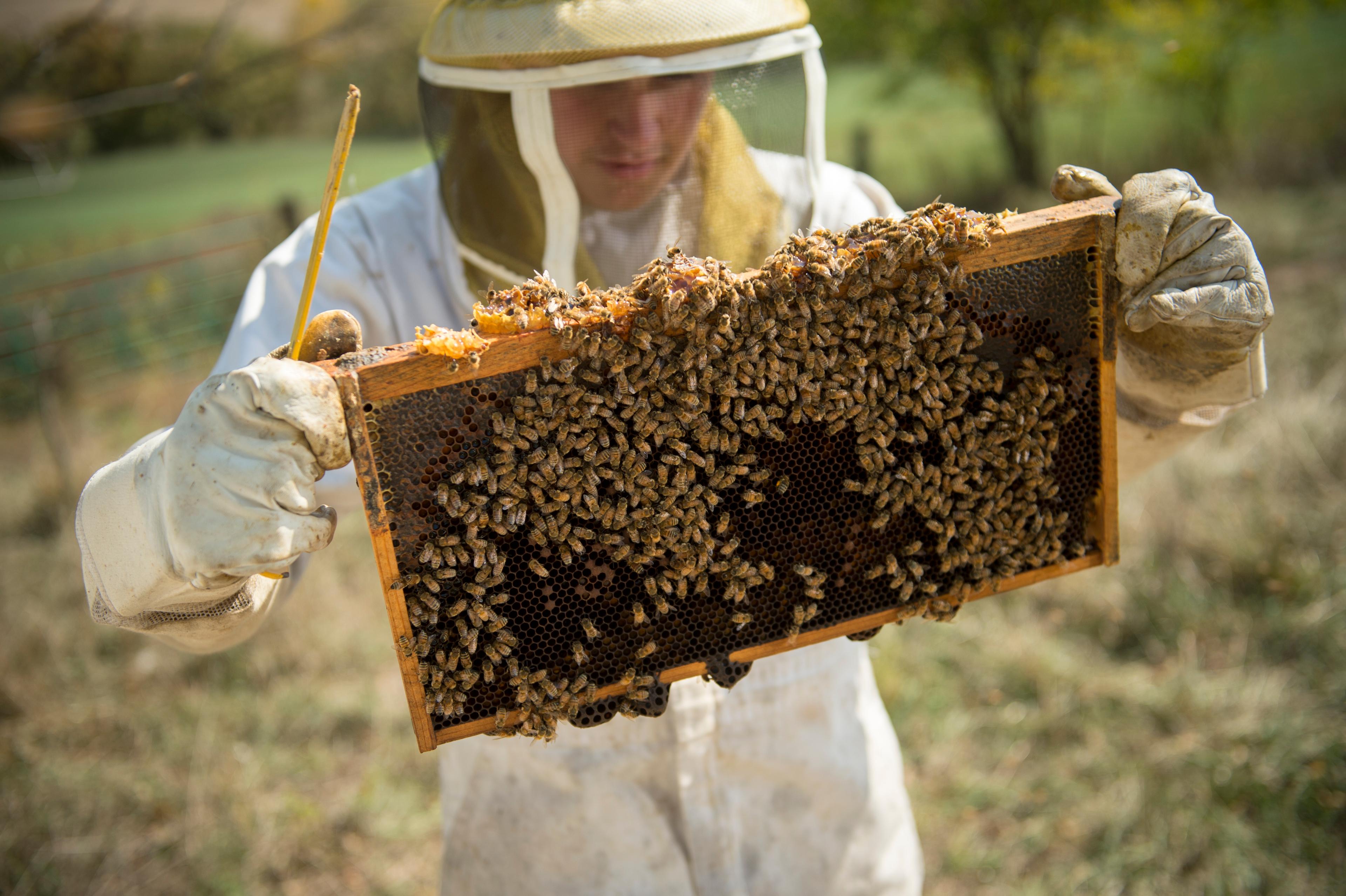
The Benefits of Bees
The Koester family took beekeeping classes so it could start beehives on their organic farm in Jo Daviess County, Illinois. Who doesn’t like a sweet crop of honey? Though honey is a nice treat, they also wanted another way to be as self-sufficient as possible and to help the bee population.
Bees are major pollinators of native plants on all inhabited continents and bee pollination is important for more than 80 agricultural crops, which account for about a third of global food production, according to the University of California, Riverside.
Habitat destruction, pesticide exposure, parasites and environmental change are factors leading to their decline. By providing preferred habitat, Organic Valley farmers help increase the bee population.
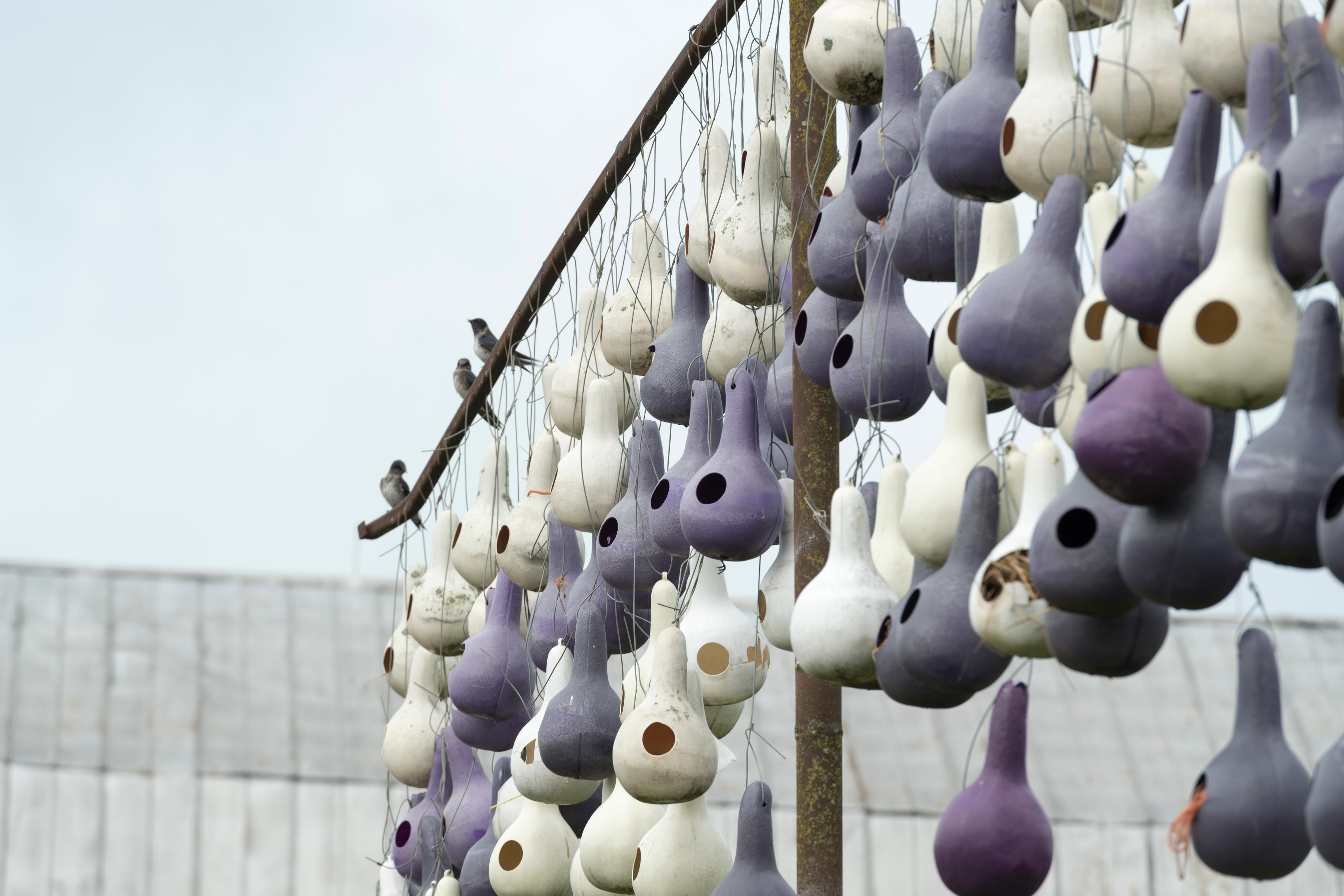
Bird-Friendly Dairy Farms
Like many Organic Valley farmers, the Lindley family of North Carolina keeps a bird-friendly farm. The Lindleys hang about 120 gourds to attract purple martins (birds make nests in the gourds and the gourds also make quite an artistic statement). The family enjoys watching and listening to the birds as they put on a show in the evenings and, instead of using pesticides for insect control, the birds take care of undesirable bugs.
Along with plentiful birds, the natural balance of things is evident on the Lindley’s farm in numerous ways. The family established diverse pastures for their Holstein cows to graze and the pasture is thriving in the rejuvenated soils the family nurtures. “Each day we see a new blessing in working with nature instead of against it,” Neill Lindley said.
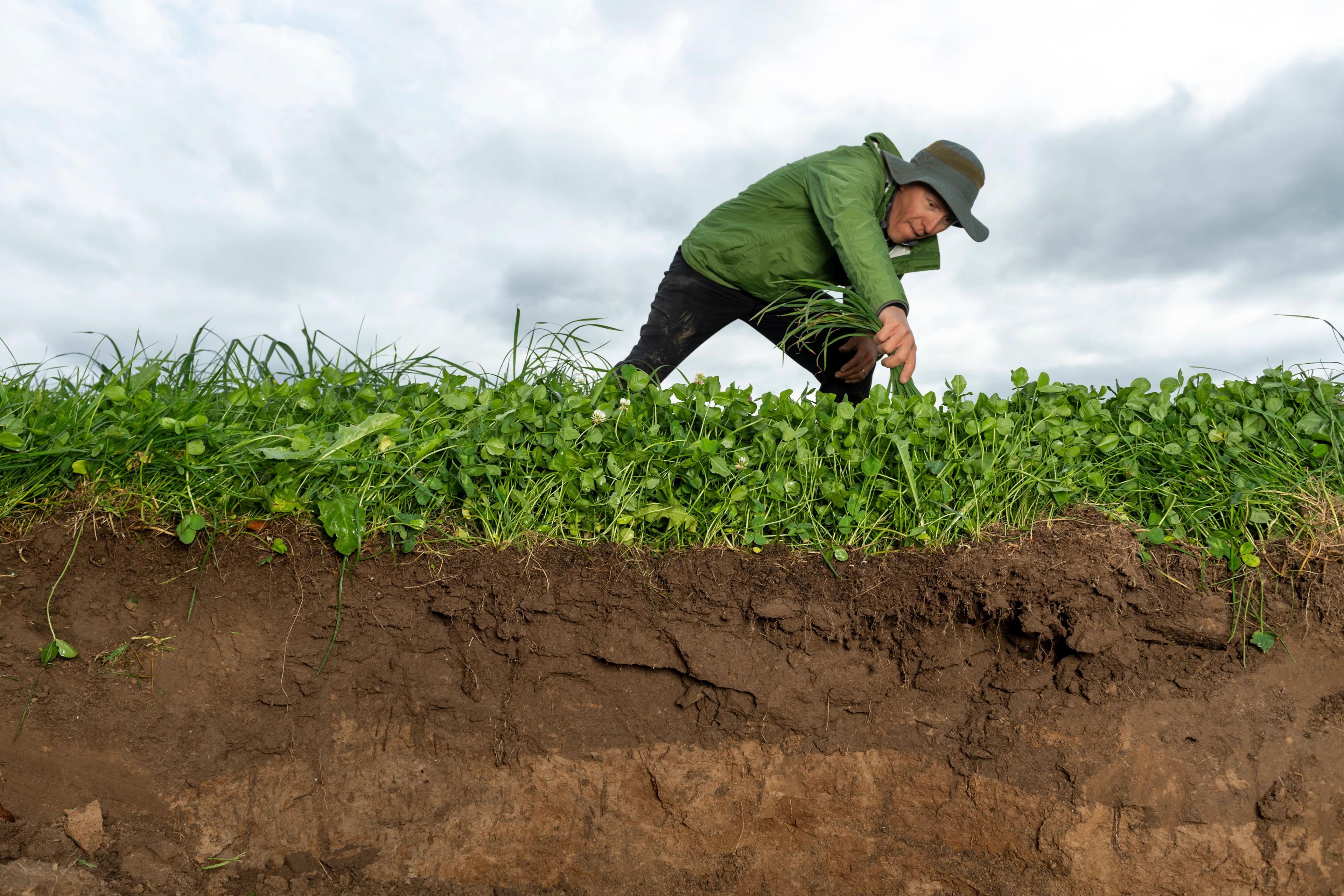
Caring for the Soil
Soil health is essential to life on the farm (and all life!). Organic farmers don’t rely on additions like synthetic pesticides and fertilizers to control weeds and pests or to make the soil more fertile. In our 30-plus year history, Organic Valley farmers have kept more than 386.8 million pounds of toxic synthetic chemicals off the land.
When the soil is nutrient-rich and fertile, the plants grown in it will be healthier and better able to stand up to weeds and pests. This means the animals who eat those plants will also be healthier, and they’ll make more nutritious food for us humans. Not only that, healthy soil will store carbon from the atmosphere, which can help slow climate change.
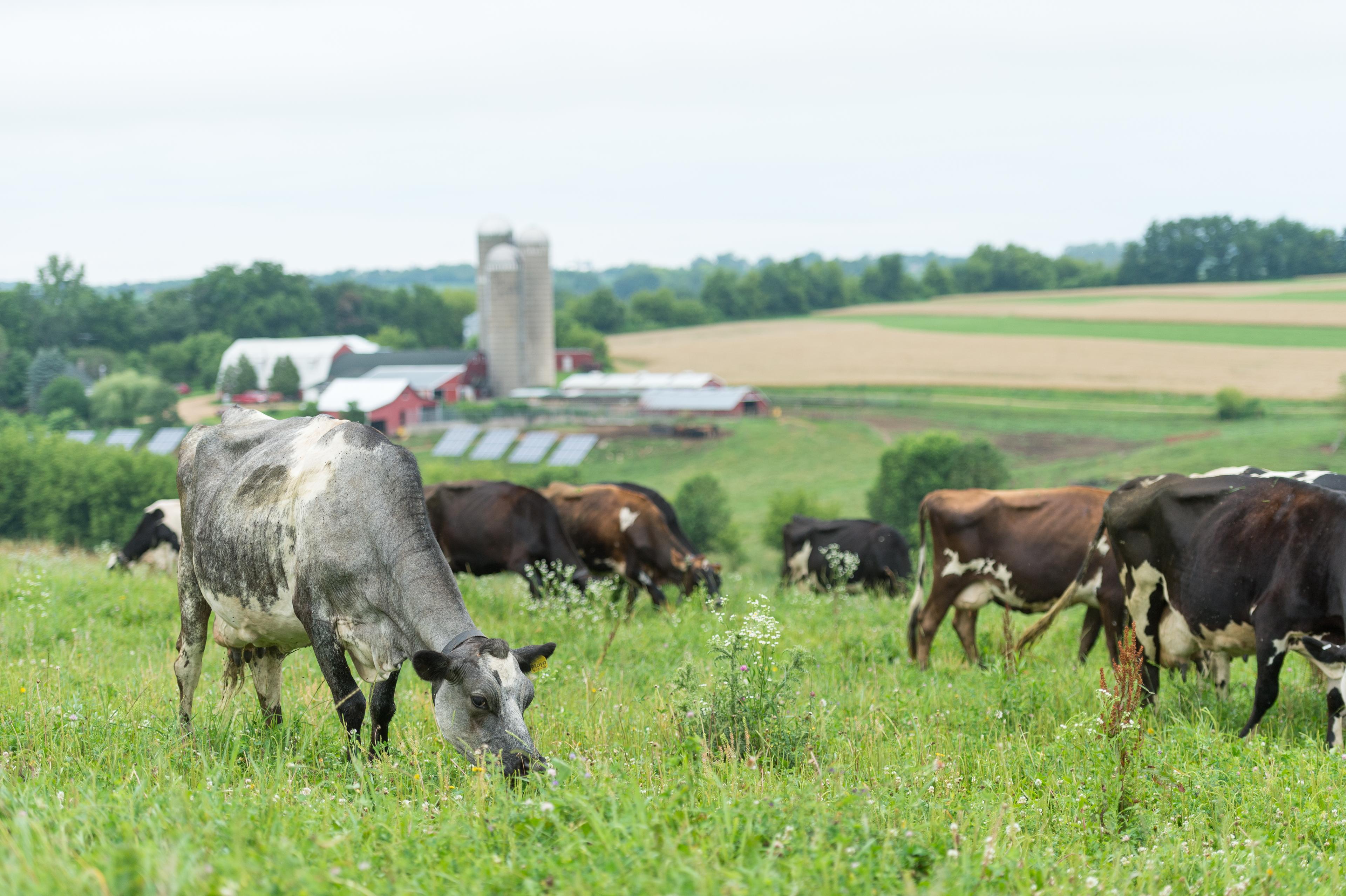
On-Farm Solar Systems
Hundreds of Organic Valley farmers rely on the sun to energize their farms. Michigan farmer-member Joe Bontreger said the initial investment to purchase solar at his farm may have been costly but the benefits are astounding.
There are two solar arrays on his organic farm, for a total of 24 solar panels. When the family converted to solar the Bontregers, who are Amish, said goodbye to fossil fuels.
“We need to look at being responsible. My core value is that stewardship is of the utmost importance, along with managing resources, and leaving the farm better than when we came,” Joe Bontreger said.
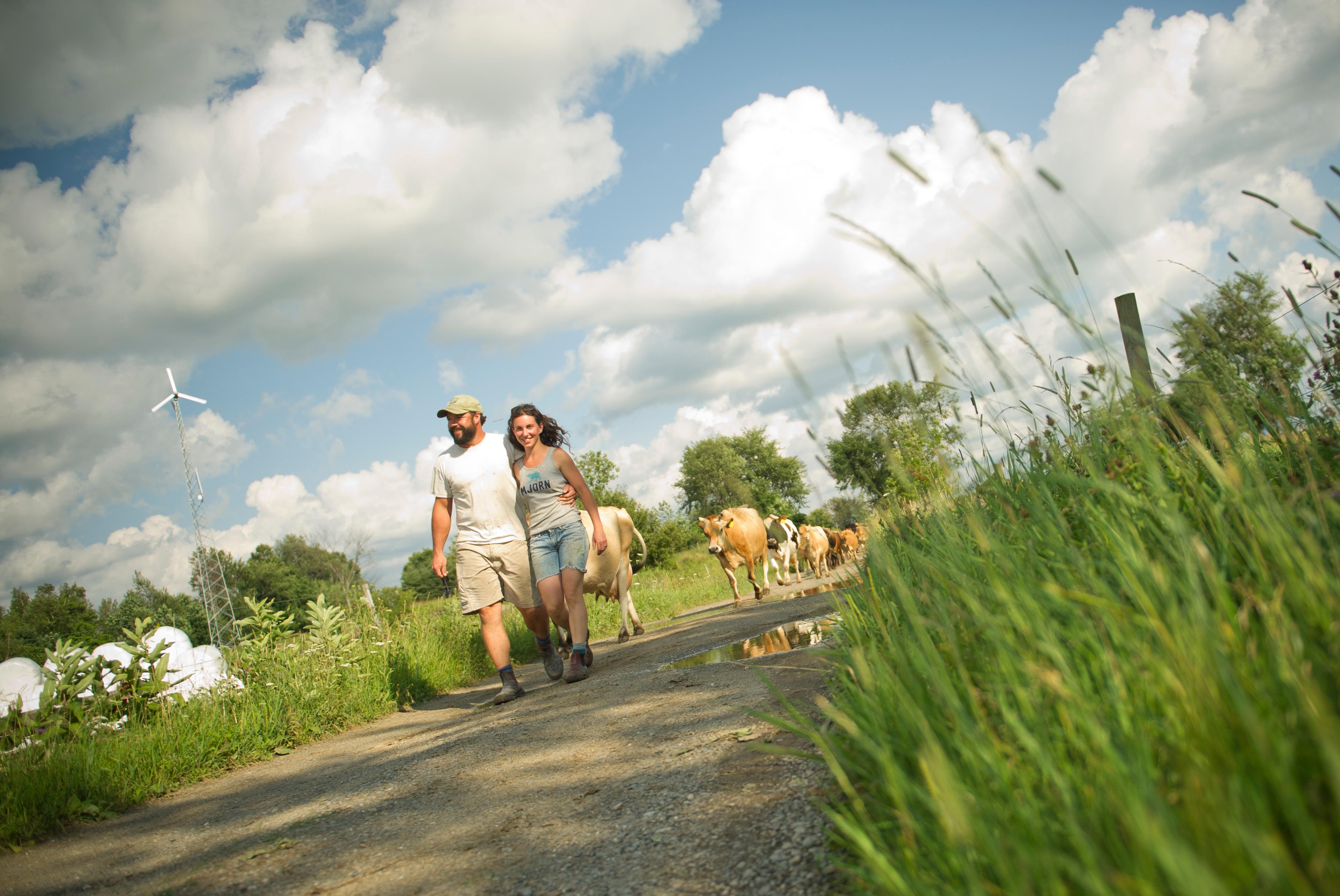
Embracing a Windy Day
The Webb family lives near the Green Mountains of Vermont. In keeping with their values surrounding ethics, ecology, and economics, Melanie and Tyler Webb worked closely with Organic Valley’s Sustainability Team to identify sustainable technologies for their farm and funding opportunities for these projects.
“As organic farmers, we are stewards of the land, so we spend a lot of time thinking about sustainability,” Tyler said. “So investing in renewable energy was a no-brainer for us. Our farm sits atop a windy ridge with southern exposure, so we are in an ideal spot for wind and solar.”
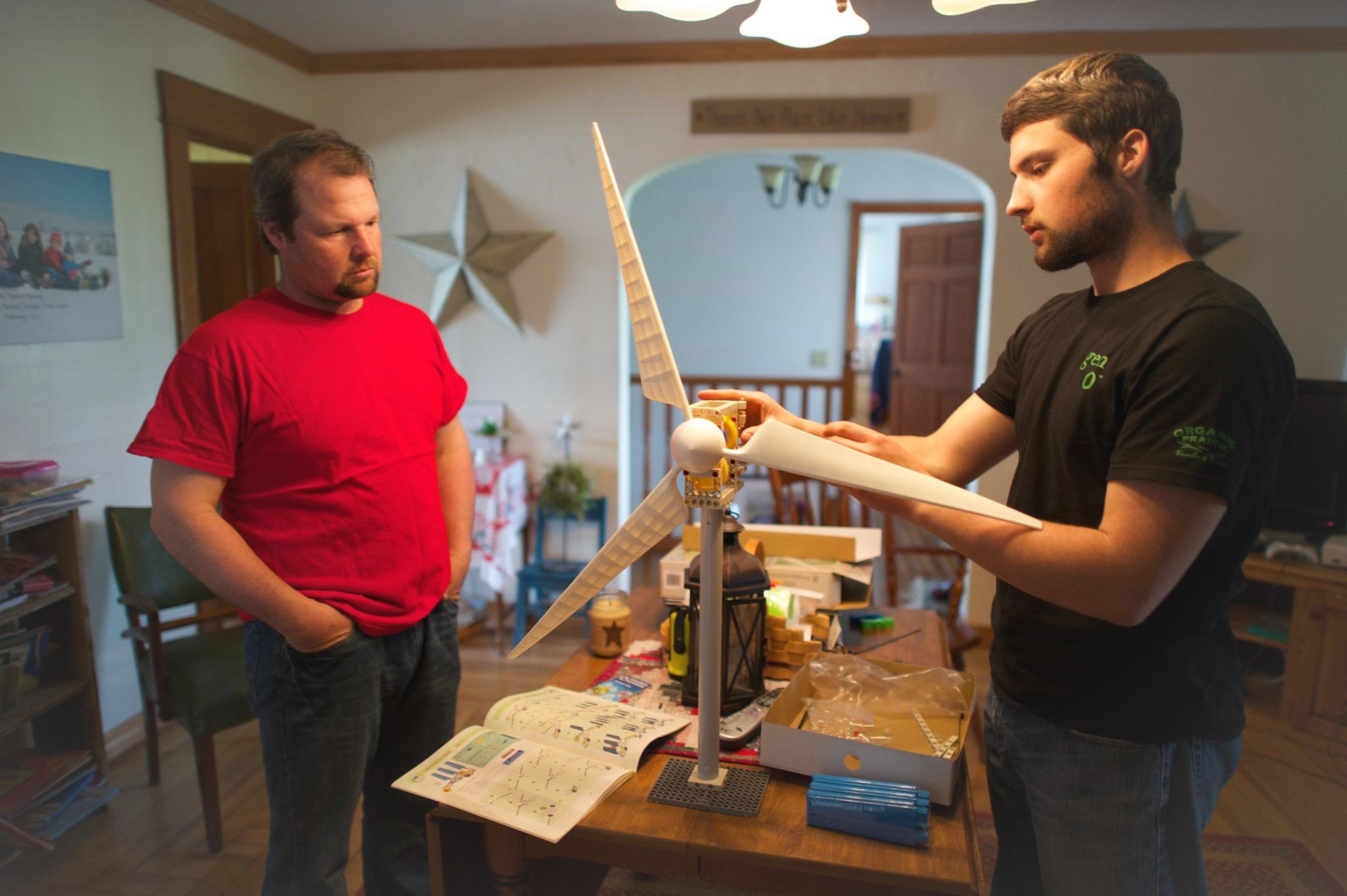
Sustainable Homes and Farms
Passersby may get a glimpse of how organic farmers take care of the planet when they see windmills, green pastures and solar panels. What they may not see is Organic Valley farmers working with nature in other ways.
Take farmer Zane Parker from Wisconsin. He has long been interested in caring for the land. When he was younger and still living at the family’s organic farm, he helped talk his parents into installing solar and he once built a miniature wind turbine to power batteries.
Zane and his wife, Gabrielle, are building an eco-friendly home using sustainable forestry practices with lumber that is harvested from their land. The house will also include composting toilets and other environmentally friendly practices.
The Parkers continue to make forestry improvements, work to control native species, and raise cattle breeds that don’t eat as much as other breeds. “This way you can do more with less,” Zane said.
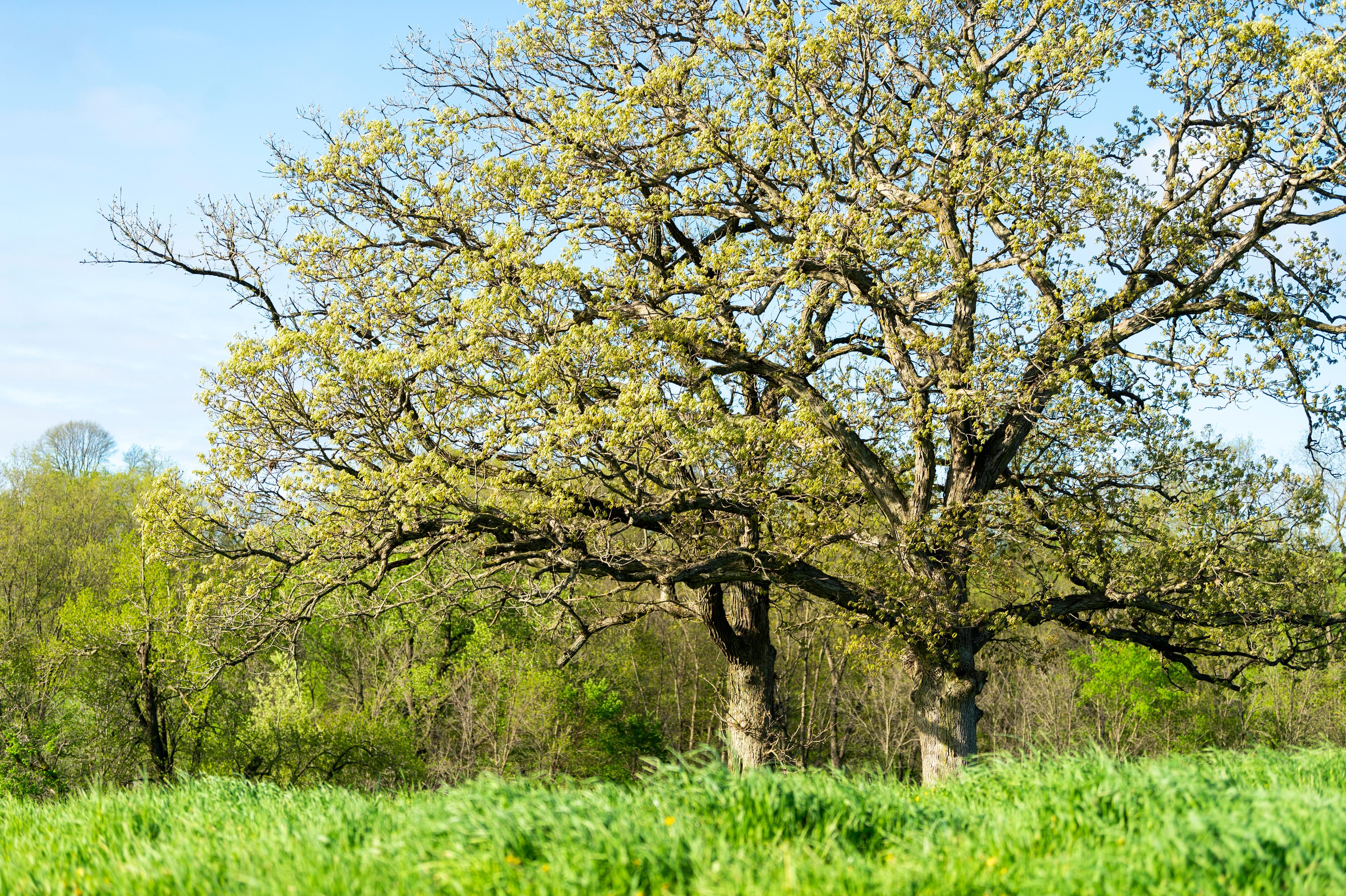
The Science Behind Silvopasture
Organic Valley is working with a handful of farmers to implement silvopasture, the thoughtful pairing of trees, pasture, and grazing animals like cows and sheep to create a healthy ecosystem.
Organic Valley farmers are always trying to improve the health of their small herds of cows and silvopasture projects can range from a dozen to hundreds of trees. Silvopasture is yet another tool to help save small family farms and reverse climate change.
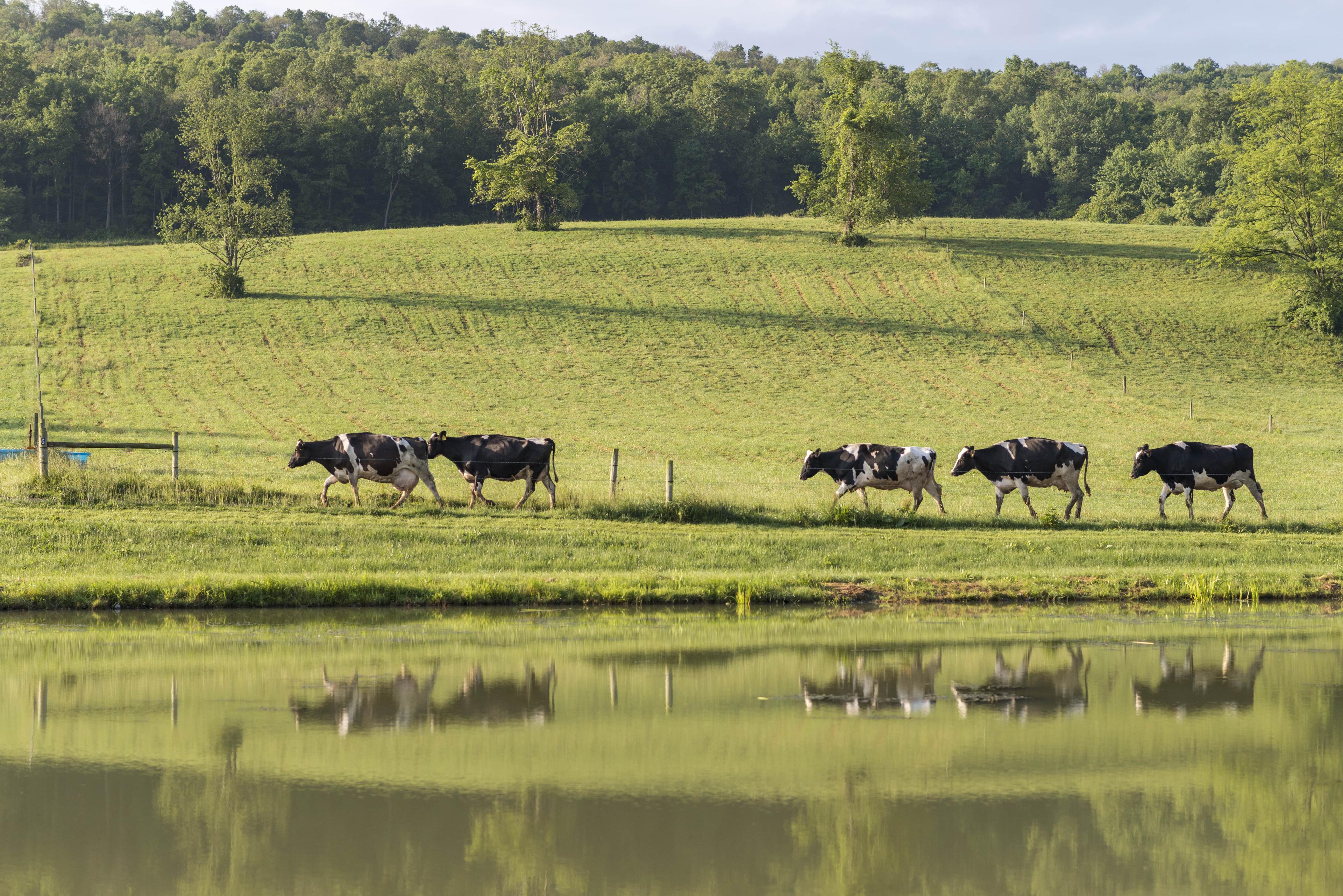
Ways to Protect Water
Keeping water pristine is also a priority on Organic Valley farms. From riparian restorations to protecting creeks so salmon can spawn, farmers deeply appreciate this precious resource. Farmers also fence cattle making riparian buffer zones, designed to create healthier water.
The Choiniere family planted 5,000 trees to restabilize banks of the Rock River and tributaries that run through their Vermont farm. They keep lush forests intact to ensure bird species have a safe haven. They also conveyed a 51-acre river corridor easement that designates an area where the river can meander naturally. There is also a permanent 50-foot naturally vegetated buffer along 12,000 feet of the river’s bank. The Sand County Foundation awarded the family the Leopold Conservation Award for the care they put into protecting habitat.
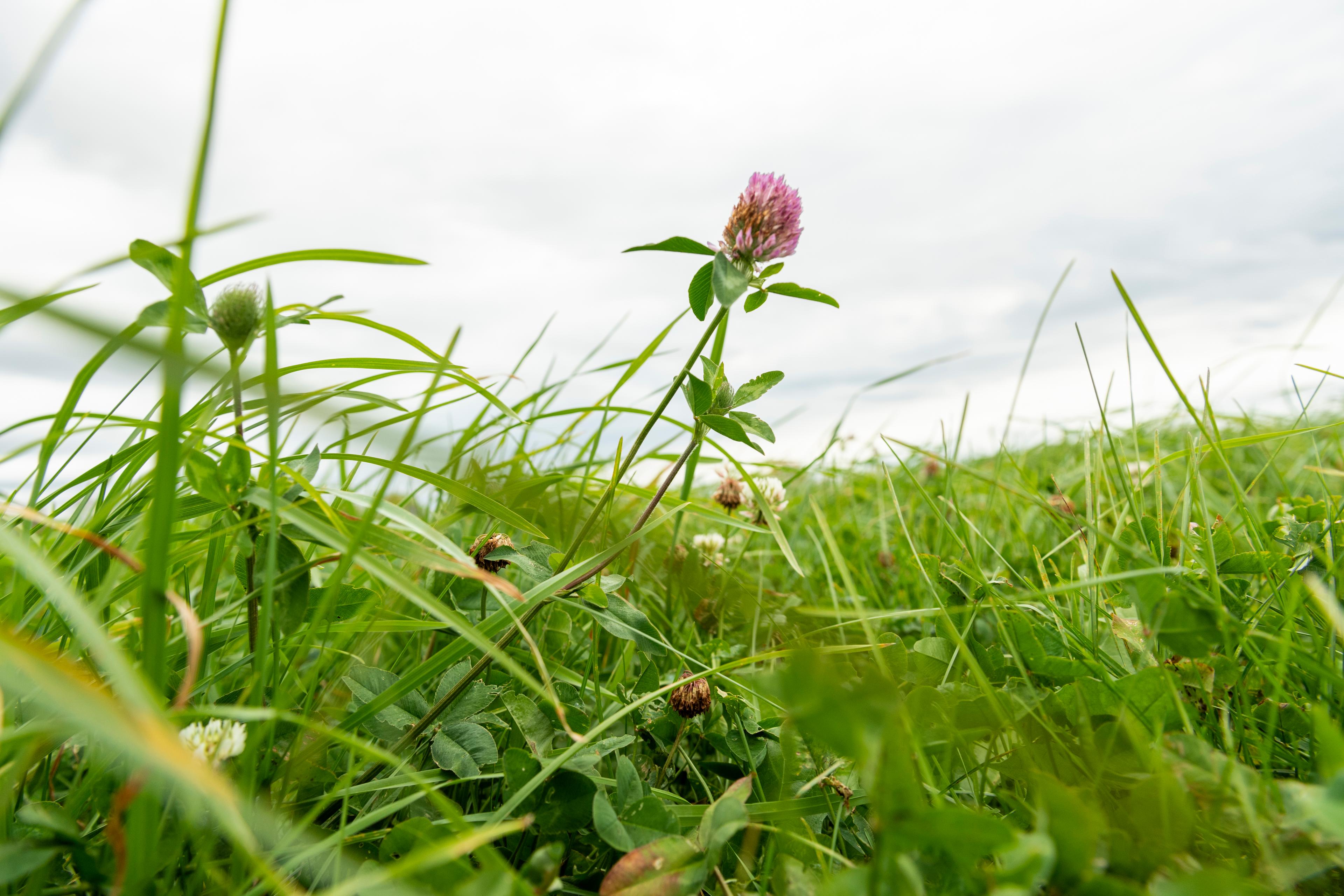
Working With Nature
Organic Valley farmers are mindful that everything in nature is connected and overlaps. We can’t have healthy soil without healthy water; we can’t have healthy cows without healthy pasture that comes from that healthy soil and water; we can’t have healthy people without quality food that comes from these healthy animals … and on and on. We have to take care of all of it, and climate-smart farming practices are a good start.
Organic Valley has big goals too; we will be carbon neutral by 2050. A new carbon insetting program will be instrumental in reaching our goal. Carbon insetting is the practice of investing in carbon reductions and/or removals within a company’s own supply chain. Removals are natural strategies like tree plantings and soil health improvements that result in removing greenhouse gas emissions from the atmosphere through a process called carbon sequestration.
You can feel confident that when you purchase Organic Valley products you are helping support small family farms that are producing nutritious food from farms that are dedicated to a healthier planet.
An antique typewriter fanatic and chicken mom who treasures time outdoors admiring all that nature has to offer, Jennifer McBride is Rootstock’s editor. McBride spent 15-plus years as a journalist and newspaper editor before finding her niche with the nation’s leading organic dairy cooperative. Contact her at Rootstock@organicvalley.com.
Related Articles
- Tags:
- water,
- climate,
- land stewardship & conservation,
- pollinators,
- regenerative agriculture,
- renewable energy,
- biodiversity,
- making an impact














